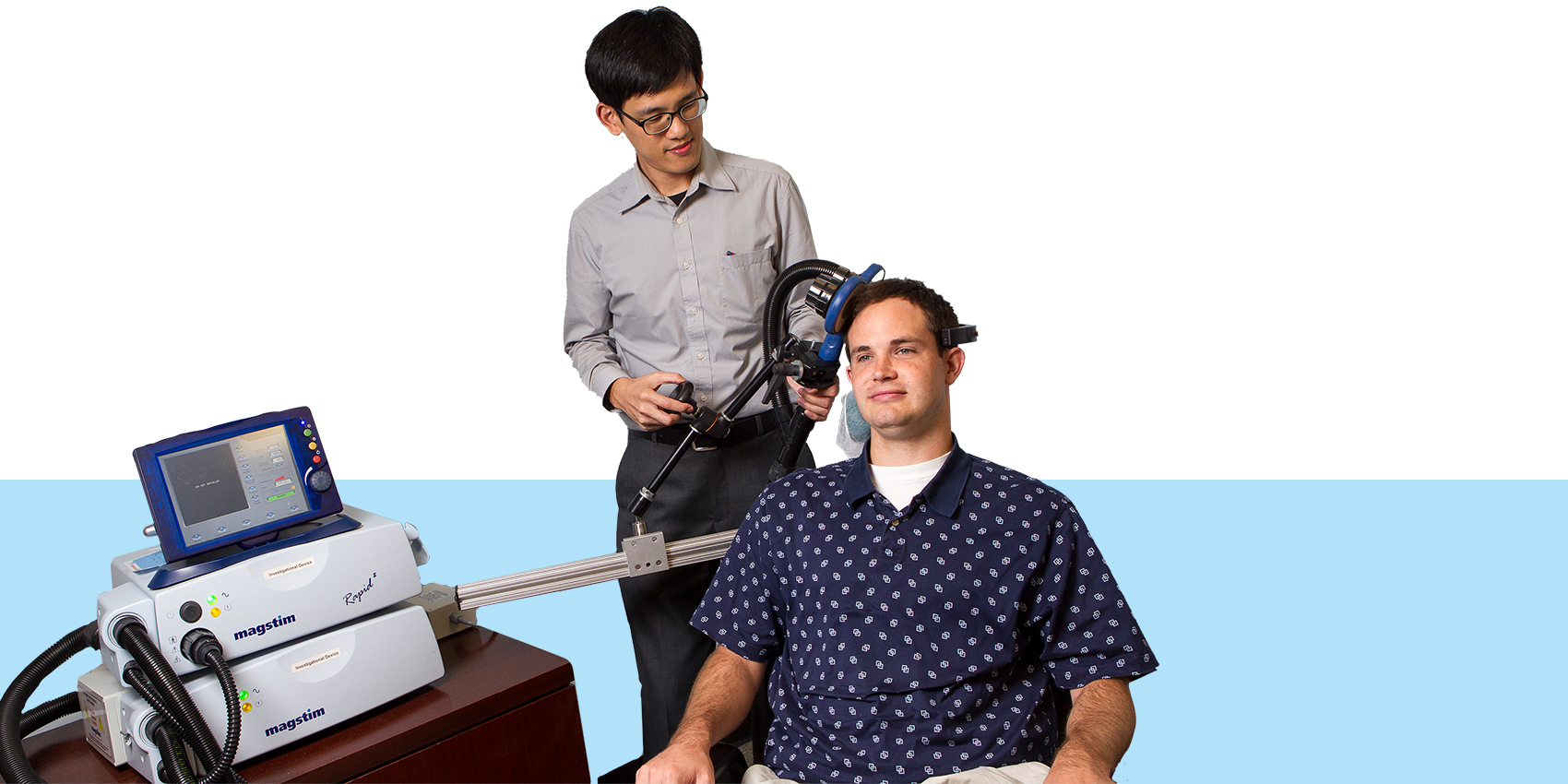A UT Dallas neuroscience research team led by Dr. John Hart Jr. received
a nearly $7.4 million grant from the U.S. Department of Defense for a multisite study on a novel treatment protocol for post-traumatic stress disorder.
The researchers are seeking up to 330 military veterans with combat-related PTSD for the study, which will include both repetitive transcranial magnetic stimulation (rTMS) and cognitive processing therapy (CPT). The funding comes after publication of the team’s
Journal of Affective Disorders study, which indicated that CPT for PTSD is more effective when paired with rTMS.
“Dr. Hart’s efforts in addressing PTSD with state-of-the-art neurotechnology is an excellent example of the innovative, high-impact research conducted at UT Dallas, consistent with our Tier One status,” said Dr. Joseph Pancrazio, vice president for research and professor of bioengineering.
Hart, the Distinguished Chair in Neuroscience in the School of Behavioral and Brain Sciences, will work with co-investigator Dr. Michael Motes on the trial, which will be conducted at three sites. Two of those are in the Dallas-Fort Worth area—one at UT Dallas and the other at a Metrocare Mental Health Services facility—and one in Tampa, Florida. UT Southwestern Medical Center psychiatry professors Dr. John Burruss and Dr. Carol North will oversee the Metrocare cohort.
“We proposed a multicenter project because we want to show that this method would work for a variety of veteran populations at different therapeutic sites,” Hart said. “We have a Veterans Affairs hospital group; we have an uninsured, underserved group; and we have a community-dwelling group.”
Repetitive transcranial magnetic stimulation is a technique in which a magnetic coil modulates targeted brain areas.
Cognitive processing therapy is a version of cognitive behavioral therapy developed specifically for PTSD.
“As in our prior study, we’ll be doing imaging to look at markers of change and to learn more about how PTSD works, the mechanisms behind it, and how it gets better,” Hart said.
Participants will be evaluated on PTSD symptoms and brain-imaging assessments at six and 12 months post-treatment. Within each population group, there will be participants receiving rTMS followed by CPT, while others will receive only CPT. The new, third component will be a subset receiving only rTMS.
Motes, a senior research scientist at UT Dallas and long-time collaborator with Hart, added that they have reason to be optimistic about sole usage of rTMS.
“The data from our previous trial indicated that, early within treatment, the people getting rTMS combined with CPT started getting better compared to those who received only CPT, and several preliminary studies have shown the potential benefits of rTMS alone,” Motes said.
As with any PTSD therapy, or neuropsychiatric therapy in general, the goal is to give patients improvement in their quality of life.
“The goal should be to get to a point where PTSD does not disrupt your work, home and social life,” Hart said.
 Two UT Dallas graduate students demonstrate the usage of the equipment for repetitive transcranial magnetic stimulation, in which a magnetic coil modulates targeted brain areas.
Two UT Dallas graduate students demonstrate the usage of the equipment for repetitive transcranial magnetic stimulation, in which a magnetic coil modulates targeted brain areas.